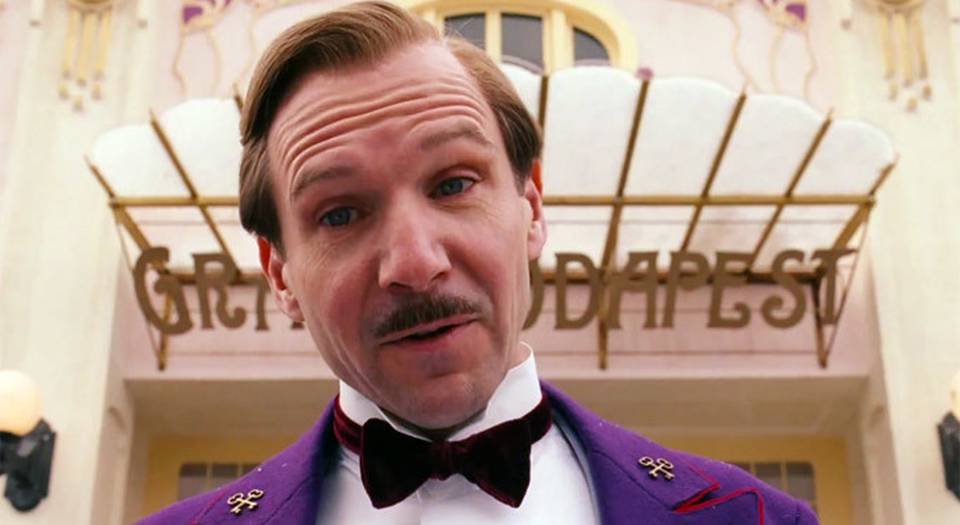The Grand designs of Wes Anderson
With The Grand Budapest Hotel, the American director once again proves that style is substance.

There are times in life when one should reject the superficial nature of aesthetics. However, this should not stop one from recognising a piece of art, which, essentially, is what The Grand Budapest Hotel is.
Wes Anderson’s latest masterpiece recounts the story of an esteemed hotel concierge, Monsieur Gustave H (Ralph Fiennes), and his newly acquired protégé, Zero (Tony Revolori), who are on the run through the fictional Zubrowka after stealing a prized painting. Sound mad? Of course! With a charming multitude of panning shots, 90-degree whips, pastel colours and unfaltering symmetry, this is Anderson doing what Anderson does best.
Why then have so many critics vehemently vilified this wonder of a film? There are three possibilities: either they lack a developed retina, have undergone a lobotomy or have never seen a Wes Anderson film before – all of which are equally terrible occurrences.
The most common criticism that I have encountered is that while The Grand Budapest Hotel is a bit of a romp, it substitutes style for substance – ‘the story is all over the place’. It’s true that the plot is a bit mad. One moment we’re watching a farcical prison escape, the next we’re transported to an alpine monastery. So does the film jump all over the place? Yes, you blithering fools. That’s the point. But does this mean that the film lacks substance? Of course not.
The reason Wes Anderson has attracted such a cult-like following is because he chooses not to recognise a dichotomy between substance and style. His films are a testament to the fact that these two components do not need to be made mutually exclusive. Instead, what makes The Grand Budapest Hotel so striking is that it is the style of the film that intrinsically provides it with its substance. Therefore, if you’re simply going to analyse the plot, you can only ascertain half of the film’s excellence. The other half requires an appreciation for the subtleties of cinema.
Yes, you can laugh at Fiennes’ absurd manner of running and eccentric disposition towards romantic poetry. But it’s Anderson’s gratuitous incorporation of seemingly purposeless add-ons that make his film perfect. A failure to recognise their worth is akin to admiring the murals of the Sistine Chapel, but failing to notice the ceiling. From the protagonist’s absurd preoccupation with the quality of wine on a sleeper train to an inmate’s use of a flick knife to cut a mouth-watering pastry, it is the film’s intricacies that make it outstanding.
Despite this, the most frustrating criticism of The Grand Budapest Hotel is that ‘it is hard to empathise with the film’s characters’. Such an inane comment makes me think these viewers should stick to The Lord of the Rings – and who can help but empathise with the plight of walking trees? Firstly, the statement itself is contentious. In fact, it is clear that each of the characters possesses a relatable element of humanity to supplement their wacky personas. This becomes most clear in the closing 15 minutes, where Anderson transforms the film from the charmingly absurd to the hypnotically moving.
However, the most worrying aspect of this criticism is that it presupposes that the purpose of a film is to recount a story that the viewer can relate to. Not only does this demonstrate the emergence of a culture plagued by an incessant need to analyse one’s emotions, but it once again completely misses the point. The purpose of Anderson’s characters is to occupy his exaggerated world with exaggerated personalities. How effective a character would Monsieur Gustave have been if he was played by Simon from the local Premier Inn?
So if you failed to appreciate The Grand Budapest Hotel the first time you saw it, go and watch it again. And I have no doubt that you’ll find it as refreshing as a petite spray of L’Air De Panache.
Solomon Roark is a writer living in London. Read his blog here.
To enquire about republishing spiked’s content, a right to reply or to request a correction, please contact the managing editor, Viv Regan.








Comments
Want to join the conversation?
Only spiked supporters and patrons, who donate regularly to us, can comment on our articles.